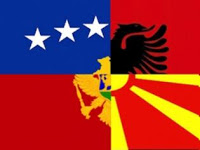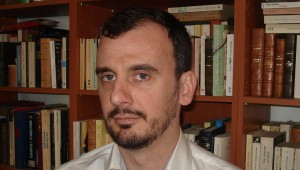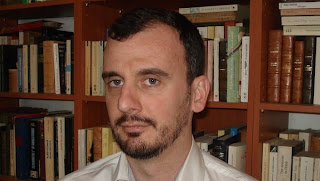Vladimir Poutine appose sa signature au bas de la Loi Dima Iakovlev. Ça, c’était le 28 décembre dernier. Malgré la date, le geste du président russe est loin d’être innocent. En ratifiant l’interdiction d’adoption d’enfants russes par des familles américaines, l’homme fort du Kremlin tire un peu plus sur la corde déjà extrêmement tendue des relations russo-américaines.
Deux semaines plus tôt, la tension était déjà montée d’un cran avec la Loi Magnitski. Une mesure américaine qui gèle les avoirs sur le territoire US de toute personne responsable d’une violation avérée des droits de l’Homme en Russie.
Ajoutez à cela la déclaration d’Hillary Clinton, en visite à Londres, qui évoque sa “crainte d’une resoviétisation de l’Eurasie”, et vous obtenez une atmosphère crispée à souhait, au point que certains n’hésitent pas à parler d’une nouvelle Guerre froide. À raison ?
Poutine et son monde multipolaire
À cette question, Alexandre Latsa répond par l’affirmative. Ce Français vit et travaille en Russie. Il est chroniqueur pour les sites d’information RIA-Novosti et Voix de la Russie, ce qui fait de lui un observateur avisé, bien que forcément orienté, des relations russo-américaines : “La politique américaine depuis 20 ans a amené cette nouvelle Guerre froide. Les lois Magnitski et Dima Iakovlev n’en sont que les plus récents développements. La différence fondamentale est que l’Amérique désormais fragilisée n’a plus en face d’elle une Russie faible et en décomposition mais une Russie qui a elle aussi ‘son’ agenda géopolitique.”
Amine Ait-Chaalal, professeur à l’UCL et spécialiste de politique étrangère américaine, n’est pas aussi alarmiste : “Entre l’URSS et les USA, la Guerre froide était bien plus tendue et parfois beaucoup plus dramatique que la situation actuelle.” Il reconnait toutefois volontiers qu’“il existe une très nette crispation des relations entre les deux pays.”
Le déclencheur de ces nouvelles tensions, ce serait donc la montée en puissance de la Russie depuis 2000 et l’accession au pouvoir de Vladimir Poutine : “Durant l’ère Eltsine, l’administration américaine avait sans doute bon espoir d’intégrer totalement la Russie à son architecture mondiale, c’est-à-dire faire de la Russie une puissance sous tutelle économique et militaire et surtout sans ambitions géostratégiques” poursuit Alexandre Latsa. Continue reading







